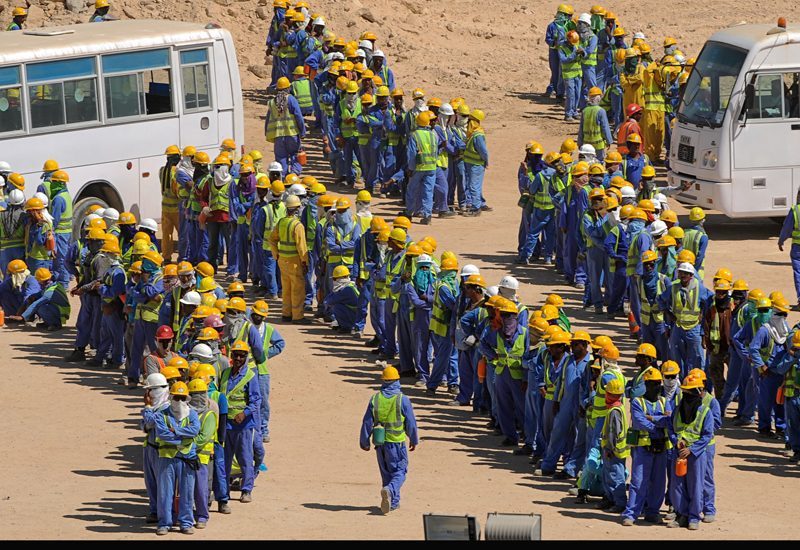With just months to the much-awaited FIFA World Cup 2022 opening, there are reports of workers not being paid and being forced to work longer hours.
Qatar-based UrbaCon Trading & Contracting Company has extended working hours for their employees and removed the Friday weekend in order to finish the World Cup projects ‘on time,’ a leaked official document has revealed.
“All are kindly requested to extend the working hours of your crews and staff till 21:00 daily with immediate effect. This is mandatory to successfully achieve the strict project delivery timeline,” the document read. “Fridays will be full working day for all sub-contractors until further notice.”
UrbaCon Trading & Contracting Company response
“UrbaCon Trading & Contracting Company (UCC) takes the physical and mental wellbeing of our workers very seriously. Working extra hours and overtime are offered and compensated in accordance with the Labour law,” the company said in a statement to Doha News.
“UCC is strongly committed to protecting workers’ welfare standards. We have established welfare committees that include worker representatives to improve communications and working conditions,” the statement added.
Workers told Doha News that they received no ‘prior notice’ and were not asked if the sudden extension would be suitable for them. The company will also not pay the workers for the extra hours.
The latest amendment was made just 260 days before the grand tournament is set to kick off in Qatar, indicating that construction companies might just be running out of time to finish the rushed projects on time. Now, workers are paying the price for the company’s mismanagement and lack of adequate planning.
More than 2000 labour complaints filed against companies in Qatar
Qatar’s Labour Law does not require private companies to compensate their employers for extra time, nor does it require to ask before extending working hours. However, Friday is the weekly rest day for all workers, except those on shift.
What’s behind the exceptional tournament?
In eight months, more than 1.2 million visitors are expected to land in Qatar for the much-awaited FIFA 2022 World Cup. The fans are promised an ‘exceptional’ experience, filled with elements of culture, heritage, modernism, and sustainability.
To deliver as promised, the country has been working for more than a decade to build state-of-the-art stadiums and significantly improve the nation’s infrastructure.
Although all stadiums have been successfully integrated, some projects remain unfinished, pushing companies to take extensive majors and exploit workers to deliver ‘on time.’
Several companies have also reportedly not paid their workers for months—an occurring violation that leaves hundreds with no proper food or shelter. Those who file claims to authorities are left for months until the investigation ‘concludes,’ leaving more room for further exploitation.
In December alone, the number of labour complaints against companies and establishments in Qatar was more than 2,000. A month later, workers from several companies in Qatar reached out to Doha News claiming the same: no salary and bad living conditions.
The country’s Ministry of Labour has repeatedly reminded the international community of ongoing work towards improving working conditions and ensuring that workers’ right are protected nationwide. However companies are increasingly turning a blind eye to the matter.
‘Sweeping’ reforms
Since winning the bid in 2010, Qatar has engaged in major work to address such issues, rolling out labour law reforms, protection initiatives and awareness campaigns.
These reforms included ending the ‘Kafala ystem’, regulating working hours, introducing the region’s first ever nondiscriminatory minimum wage, and establishing a complaints centre and hotline for workers to file grievances in cases of exploitation.
Read also: Qatar has made ‘strong progress’ on human rights but more work needed
However, while rights groups welcomed the reforms, they have insisted that much of these changes have only taken place on paper with the reality remaining the same, several organisations including Amnesty International and Human Rights Watch called on Qatar to implement its labour law reforms more vigorously and close any existing loopholes.







